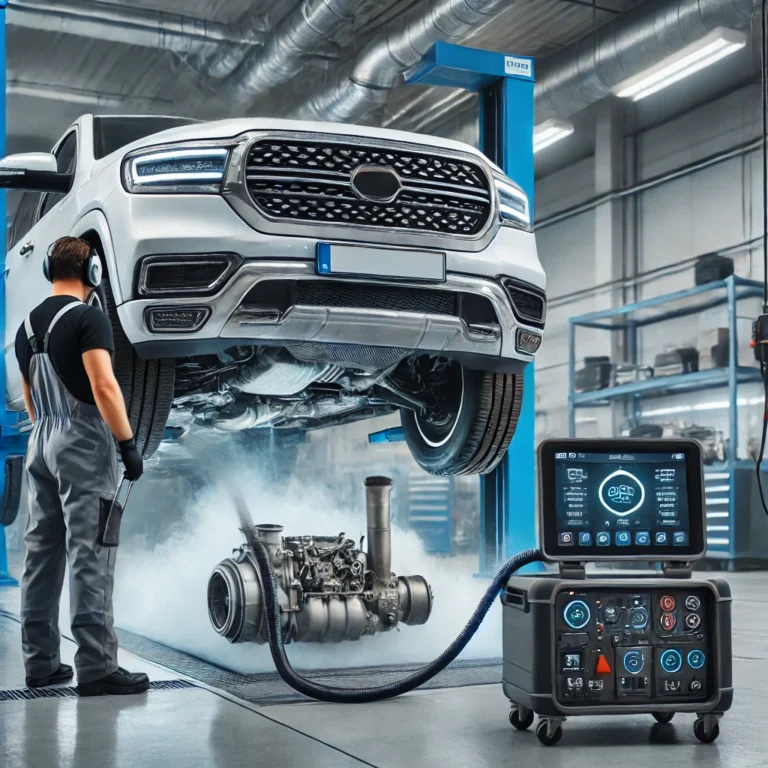When it comes to getting the most out of your vehicle, engine remapping has become a popular option among car enthusiasts and everyday drivers alike. While remapping is often associated with diesel vehicles, many people wonder, can you remap a petrol car? The answer is a resounding yes! Petrol cars can benefit just as much, if not more, from engine remapping, with noticeable improvements in performance, fuel efficiency, and driving experience.
In this blog post, we’ll explore the ins and outs of remapping a petrol car, what it entails, the benefits, and whether it’s the right option for you.
What is Engine Remapping?
Before diving into whether you can remap a petrol car, it’s important to understand what engine remapping actually is. Every modern car has an Engine Control Unit (ECU), which is essentially the brain of the engine. The ECU controls various parameters such as fuel injection, ignition timing, turbo boost pressure (for turbocharged cars), and more.
Manufacturers often set these parameters conservatively to ensure vehicles meet emissions standards, accommodate varying fuel qualities, and operate in different climates. Engine remapping involves modifying the software of the ECU to adjust these parameters, unlocking the full potential of the engine. By optimizing these settings, the vehicle can achieve better performance, improved fuel economy, and a more responsive driving experience.
Can You Remap a Petrol Car?
Yes, you can remap a petrol car, and it can be highly beneficial. While diesel engines are commonly remapped for improved fuel efficiency and torque, petrol engines are often remapped to enhance performance, increase power, and improve throttle response.
In fact, remapping petrol engines has gained popularity in recent years because modern petrol engines, especially those with turbochargers, respond exceptionally well to tuning. Let’s take a closer look at the potential gains and benefits of remapping a petrol car.
Benefits of Remapping a Petrol Car
There are several key benefits to remapping a petrol engine, particularly if you’re looking for more power, better throttle response, or improved fuel efficiency. Here are some of the most notable advantages:
1. Increased Horsepower and Torque
One of the main reasons people opt for petrol car remapping is to unlock extra horsepower and torque. Remapping adjusts various engine settings, such as air-fuel ratios and turbo boost pressure (in turbocharged engines), allowing the engine to produce more power.
For example, a turbocharged petrol engine can see gains of up to 20-30% in horsepower and torque after a remap. Even non-turbocharged (naturally aspirated) engines can benefit from a remap, though the gains are typically more modest, around 5-10%. Still, the added power can make a noticeable difference in acceleration and overall driving performance.
2. Improved Throttle Response
One of the most immediate changes drivers notice after remapping a petrol car is improved throttle response. The remap reduces the delay between pressing the accelerator and the car’s response, making the vehicle feel much more responsive and lively.
For those who enjoy spirited driving or regularly drive in situations where quick acceleration is necessary, such as overtaking on the motorway, the improved throttle response can enhance the overall driving experience significantly.
3. Better Fuel Efficiency
While many people associate engine remapping with power gains, remapping a petrol car can also lead to better fuel efficiency. By optimizing fuel injection and ignition timing, the engine can run more efficiently, especially at lower speeds and during cruising.
It’s important to note that the extent of fuel savings depends on driving habits. For example, aggressive driving can negate any efficiency gains, but for more controlled driving, fuel savings can be noticeable.
4. Smoother Power Delivery
In addition to the raw power gains, remapping also helps smooth out the delivery of that power. Standard factory settings often create uneven power distribution, with noticeable peaks and valleys in acceleration. A remapped engine provides a more linear power curve, meaning the power comes on smoothly throughout the rev range. This makes for a much more enjoyable driving experience, especially in city traffic or on winding roads.
5. Tailored to Your Needs
One of the great things about remapping is that it can be customized to suit your specific driving style and needs. Whether you’re looking for maximum performance or better fuel efficiency, the remap can be tailored accordingly. At PRO REMAPPING, we specialize in providing bespoke remaps for petrol cars that deliver exactly what our clients need, whether they drive performance cars or everyday vehicles.
Petrol Cars That Benefit Most From Remapping
While nearly all petrol cars can be remapped, some types of engines benefit more than others. In general, turbocharged petrol engines experience the most significant gains from remapping. The increased turbo boost pressure that can be achieved through a remap allows for dramatic improvements in both horsepower and torque.
That said, naturally aspirated petrol engines can also be remapped for better throttle response, smoother power delivery, and fuel efficiency, though the performance gains are more moderate compared to turbocharged engines.
Here are some examples of petrol cars that typically respond well to remapping:
Turbocharged Petrol Engines: Cars like the Volkswagen Golf GTI, Ford Focus ST, and Audi S3 benefit greatly from remapping due to their turbocharged engines.
Performance-Oriented Petrol Engines: High-performance cars like the BMW M3, Porsche 911, and Subaru WRX can see significant power gains through remapping.
Naturally Aspirated Petrol Engines: Even non-turbo petrol cars like the Honda Civic Type R or Mazda MX-5 can benefit from improved throttle response and smoother power delivery with a remap.
Is Remapping Safe for Petrol Cars?
One of the most common concerns about remapping is whether it’s safe for the engine. When done properly, remapping is generally safe for petrol cars, provided that the vehicle is well-maintained and in good mechanical condition.
At PRO REMAPPING, we use professional-grade tools and techniques to ensure the remap is tailored to your vehicle’s specific capabilities and limits. We also conduct thorough diagnostics before proceeding with any remap to ensure that your engine can safely handle the increased performance.
However, it’s essential to keep in mind that remapping pushes the engine closer to its performance limits, so regular maintenance is crucial. For example, using high-quality fuel, keeping the engine well-lubricated, and performing routine oil changes are necessary to ensure the engine remains in good condition after a remap.
What Are the Potential Downsides of Remapping?
While remapping offers many benefits, it’s important to be aware of the potential downsides:
Increased Wear and Tear: Remapping increases power output, which can lead to increased wear and tear on certain engine components. It’s vital to ensure that your car is well-maintained and serviced regularly to handle the added stress.
Insurance Considerations: Remapping is considered a modification, so you’ll need to inform your insurance company. Depending on the insurer, this could result in higher premiums.
Warranty Void: If your car is still under manufacturer warranty, remapping could void the warranty. Always check with your dealer or manufacturer before proceeding with a remap.
Conclusion
So, can you remap a petrol car? Absolutely! Remapping offers several benefits, including increased horsepower and torque, improved throttle response, better fuel efficiency, and a more enjoyable driving experience. Whether you have a turbocharged petrol engine or a naturally aspirated one, remapping can unlock your car’s full potential.
At PRO REMAPPING, we specialize in providing tailored remaps for petrol cars, ensuring that the results align with your specific driving needs. If you’re interested in remapping your petrol car, contact us today to learn more about how we can help you achieve optimal performance.



